Gae Polisner's Blog, page 5
July 22, 2016
Friday Feedback: Do You Have What it Takes to be a Writer? Quiz with Amy Fellner Dominy
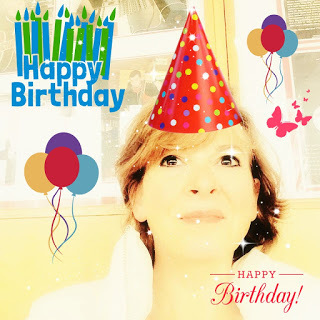 Hey, shiny campers! Guess what today is?
Hey, shiny campers! Guess what today is? It's my birthday!!!
And in honor of my birthday, thought we'd lighten things up around here just a bit. Because, really, all this feedback is all well and good if you're meant to be a writer.
But what if you're not?
Why waste your time with it, then?
And, anyway, how do you even know?
So, courtesy of my good pal, often critique partner, and amazing writer, Amy Fellner Dominy, we thought we'd give you a little quiz. See if you're really cut out to be sharing your words.
Because, if you're not, well. . .
Amy has been here on Friday Feedback with me since the beginning of TW, I think, so many of you know her already, and love her like I do.

 But in case you don't, she is the author of several award winning books including A MATTER OF HEART (an ALA Top 10 Sports Book for 2015) and DIE FOR YOU, a dark romance, coming November 8, 2016 from Delacorte Press.
But in case you don't, she is the author of several award winning books including A MATTER OF HEART (an ALA Top 10 Sports Book for 2015) and DIE FOR YOU, a dark romance, coming November 8, 2016 from Delacorte Press. From DIE FOR YOU:

It sounds amazing, doesn't it? I have read a bunch of it, and cannot wait to read the rest! If you're interested, please pre-order. Nothing helps a book (and author!) more than preorders!
Okay, so now, let's get to it. Do you have what it takes? Take a deep breath and find out? (Amy will share her excerpt, too, down below):
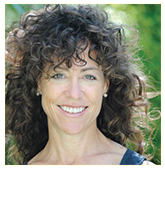 Do You Have What it Takes to be a Writer?
Do You Have What it Takes to be a Writer?10 Questions to Consider
by Amy Fellner Dominy
So, you’re three weeks into Teacher’s Write. You’ve learned so much in such a short time. You’ve begun to experiment with ideas, develop characters, discover voice and setting. Maybe you’ve even felt the tingly rush of inspiration, the goose bumps of an “ah ha” moment. This writing thing is, well, it’s hard work, sure…but it’s also fun. But are you really cut out to be a writer? Should you retire to a smoking jacket, an old comfy chair and a keyboard? The answer to that just might lie in the answer to these 10 questions. So take the quiz and find out: Do you have what it takes to be a writer?
1. Can you write absolute crap? If so, congratulations! You’re on your way. Most first drafts are truly terrible. The trick is—can you open your heart, pour out what you think is awful and still continue? That’s what a writer must do. It’s only through revision that the work begins to shine. So if you’re a perfectionist or you’re too embarrassed to reveal that very bad beginning, you won’t make it far.
2. Do you crack yourself up and creep yourself out? As a writer, you have to write first for yourself. If you’re worried about what everyone else thinks, or what the market is looking for, or what the next big trend is, you’re in trouble. But if you can sit down each day and write what’s in your heart, this could be your dream job.
3. Do you have extremely strong abdominal muscles? Have you ever seen those guys on TV who tighten up their stomachs and then dare someone to punch them as hard as they can? Well, that’s what it can feel like to share your excerpt online. (Maybe you’ve already felt this for yourself?) It’s exactly how it feels to send your book out. You’re basically giving a stranger the opportunity to punch holes in your story. Which is like punching a hole in yourself. A writer knows how to tighten those core muscles and absorb the blow. Yeah, it hurts. Yeah, it leaves you bruised. But then a writer stands back up and readies those abs again.
4. Are you willing to stand naked on a stage and yell, “Look at me!”In other words, let’s discuss book marketing and promotion.There’s a joke by Stephen Wright: “It’s a small world. But I’d hate to paint it.” I always think of that when it comes time to promote a book because the world begins to feel like an extremely big place. And it seems to be full of books. If you want people to know about yours, you can’t be shy. You have to open your arms to the world and cry, “Me Me Me!” (Clothing optional.)
5. Check out this dancing baby on YouTube! https://www.youtube.com/watch?v=77ql1emlCn4 This was actually a test. Did you click over (did you think about clicking over?) Because what you’ve just experienced is a DISTRACTION. There are a million of them every day and a writer has to fight them off, stay focused and resist temptation. If you want to be a writer, you must turn off social media, tell your children not to bother you unless there’s fire or blood, and you must forego the joy of browsing a well-stocked pantry. Can you do it? Then you just might have what it takes.
6. Is writing so hard it makes you want to cry?Yes? Excellent! You’re doing it right. Creating a full-length novel with a unique voice, characters who leap off the page, and a plot that compels the reader to keep turning pages is a monumental task. So if you’re pretty sure you can knock out a novel this weekend, you may have unrealistic expectations. (But if you manage to do it, please let me know HOW!)
7. Do you love chocolate?Okay, so this really doesn’t have anything to do with anything. I only mention it here because I’ve noticed a lot of writers seem to have addictions to chocolate—could this be the key to success? (Could the fact that I prefer an apple fritter to a truffle be holding back my career?)
8. Do you have a muse you can rely on? If you answered yes, I’m jealous. I’ve spent years hoping mine would show up and I’ve come to the opinion that muses are like Unicorns and a Post Office with no lines. Inspiration is magical but you don’t need it. Perspiration (which is unpleasant and sticky) is completely necessary.
9. Do you hear a voice in your head, and it’s not kind?I keep a sign by my desk that reads: “My Inner Voice Hates Me.” Every day, there is my voice, whispering in my head: “You have no talent. Your idea is crap. You should give up and see what’s in the pantry.”My inner voice is mean, and she seems to be part of a worldwide organization of inner voices which plague authors. (Or maybe they plague everyone?) To succeed as a writer, you have to invest in mental duct tape—and use it!
10. Did you write today? This is the only question that really matters. Did you write today? Will you write today? Bad or good, inspired or tired—writer’s write. Which means that this summer, you’re all writers. J
I hope I’ve given you all something to smile about.
Now back to work.
And to the hard part: Sharing. Since it's Gae's birthday, think we'll keep it fun and light where possible. Share whatever you want, but if you have a humorous section of your manuscript to highlight, all the more power to you! If you don't, post whatever. Really, it's okay. And don't forget to follow the RULES (what works? what doesn't, if anything, and are you compelled to keep reading. And despite my longer excerpt, limit to 3 - 5 paragraphs, please).
I guess l go first.
This is from a middle grade novel I've been working on in between other projects, called BAD KAT about a girl named Katie who wants to change her image so she can win the part of the villain in the school play. This is a conversation between Katie and her younger sister, Alison:
“I need to figure out how to get sent to detention.”Alison unglues her eyes from the TV to look at me. “What? You?”“Yes, me.” She bursts out laughing, which I find highly offensive. Why does no one believe I can be bad? “Just give me some ideas,” I say.She glances at Mom, then back at me. I can almost see the wheels of her mind turning. They’re tiny wheels to fit inside her pea brain. “If I help you, you have to take out the trash for a month.”“A month!” “You want to be bad or not?” My eyes narrow and for a moment I bask in a vision of me throttling my little sister. “Fine,” I agree. “A month. Now tell me how you got detention.” She glances around me to make sure Mom isn’t listening and then whispers, “I got caught cheating on Michael Alston’s vocab test.” “Michael Alston?” I picture the skater boy from down the block. “He can spell?”“No. But he sits next to me.” “And that’s your only criteria for cheating?” “I was fake cheating.”I shouldn’t ask. I know I shouldn’t but… “Okay, I’ll ask. Why were you fake cheating?” “To get sent to detention because Bentley Howard is there.” “And Bentley Howard is?”“Hot.” Alison manages to turn it into a two-syllable word. “I should have known it had to do with a boy.” “He’s not a boy. He’s on the cusp on guyness. And for all you know, Bentley might be The One.” “You’re twelve, Alison.”“Nearly thirteen. And I’m not going to end up like you, alone at fifteen. I mean, you had your shot.”
----Now it's your turn. Share anything you want, funny and light if you've got it. And happy birthday, Gae!
Thanks for having me!
Amy (and Gae)
Published on July 22, 2016 02:57
July 18, 2016
Friday Feedback: Bonus Monday: When Advice -- or Feedback -- Contradicts
It may surprise (and confuse!) new writers when they get totally contradictory "advice" from readers as to what works and what doesn't. After all, if there isn't an objective truth to what works in our writing and what doesn't, how will we ever know where and when and how to revise?
The answer is a simple but terrifying one:
Ultimately, we have to trust ourselves.
Having said that, for ME, writing a good book -- a good story -- takes a village.
I want and need the advice of my trusted BETA readers, my agent, and, ultimately, if I'm lucky, my editor.
I would be lost without it. But just because I get advice, doesn't mean I always take it.
To be clear, I always listen to it.
To be clear, I always listen to it. But I don't always take it.
Does that make sense?
Look, if I'm asking someone to read for me, than the simple fact is, their advice is worth LISTENING TO to me. I may not necessarily agree with their suggestion of how to fix something they don't like (and really don't love when people tell me how to fix something unless I specifically ask for that -- rather, I like to hear what their problem/issue is for them, then figure out how I should fix it myself in a way that is organic to the characters and story I've written. Unless I ask. And sometimes, I do ask.
But what if readers contradict one another? One says they love X character; the other says X character isn't working. One hates the opening and thinks the opening should start three chapters in. Another says the opening is their favorite part?
I mean, HELP!!!!
I do have a rule of thumb of sort about advice/feedback, and it's this: If one person I admire (this would include anyone I've enlisted or asked to read on my behalf -- otherwise I wouldn't have asked -- or my agent** or editor**) takes issue with something, I listen (as I said). I take the advice as "food for thought." BUT, if a second or third takes issue in the same place or with the same aspect of story, I know I need to revise. I assume I have not successfully accomplished with my writing, story or character building, what I thought or hoped I had accomplished.
(Of course, if the one person who has issue with something is my agent or editor, I skip right to step two. Of course my agent or editor's advice carries more weight than a BETA reader's since they are professionals in the business and need to like my work because they are repping it or bringing it to market. But still. What if three BETA readers all love a character that my agent hates (why, yes, this has happened...). Or what if an aspect of story isn't working for a few BETA readers but my agent doesn't voice any concern over it?
How do we parse through all this conflicting advice?
For sure, there is a hierarchy (with agent and editor coming first), but what must come first and last is the writer's own gut. If it's not working but I love it, I keep going back in. Asking the question: why doesn't he/she love this character or story aspect that I love? What do I think I'm doing successfully, that I'm not doing successfully yet? How can I read and see this more objectively (e.g. through their eyes).
Sometimes, pointed specific questions like that about a particular character or scene can be asked of a new reader, based on prior feedback. "My agent is struggling with this character I love. Might you tell me where the character works for you or doesn't?" That kind of thing. Fresh eyes go a long way in helping us to see what gets lost in our months of repeated revision and rereading.
But in the end, it does, always, come back to us. I thought it might help to have some advice and thoughts from a few other authors about how they deal with conflicting feedback and advice:
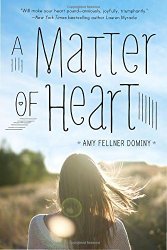 From Amy Fellner Dominy (author of the forthcoming DIE FOR YOU, A MATTER OF HEART, AUDITION & SUBTRACTION and OyMG. . . and a picture book or three under contract. . . Amy will be hosting Friday Feedback this coming week!!!
From Amy Fellner Dominy (author of the forthcoming DIE FOR YOU, A MATTER OF HEART, AUDITION & SUBTRACTION and OyMG. . . and a picture book or three under contract. . . Amy will be hosting Friday Feedback this coming week!!!Don't immediately rewrite and don't immediately discount the note.
Give yourself some time. Don't immediately rewrite and don't immediately discount the note. Our first response to criticism can be emotional. Wait until you can objectively consider the suggestions and then act accordingly.
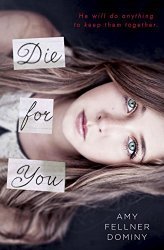 Get a second opinion. I'm in a critique group with two very talented, published authors and they will often have completely different notes on the same pages. If they both question the same thing then I know I have a problem. If they both love something, I know I've hit a chord.
Get a second opinion. I'm in a critique group with two very talented, published authors and they will often have completely different notes on the same pages. If they both question the same thing then I know I have a problem. If they both love something, I know I've hit a chord. If you get conflicting notes (or if you only have one reader), then I try to get to the heart of the comment. What is the actual problem my reader is having? For instance, I recently had a critique partner tell me a scene felt too unbelievable--could I take it out? Well, I could, but I went back in to the section and realized that I hadn't set the scene up very well. I hadn't laid the groundwork for the event that followed and so it felt wrong. Once I built up the moment before, the scene worked just fine and I left it in the book. Don't be afraid to ask for more clarity. Don't be afraid to ask for more clarity. Even when I'm working with my editor, I don't always agree with all the notes. If we discuss and she clarifies her thoughts, it always leads to a good solution--one that works for me and works for her.
From Carole Estby Dagg author of award-winning middle grade historical novels THE YEAR WE WERE FAMOUS and SWEET HOME ALASKA):
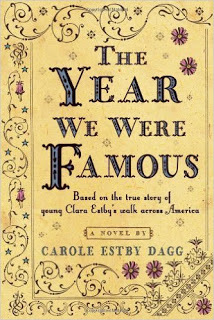 I take all feedback seriously. I know even award-winning writers have completely re-written a better book after suggestions of their editors. I accept that I may have to revise 20 or a thousand times to get it right. I especially take seriously all comments that address my acknowledged weaknesses (not following up action with emotional reaction, not getting enough of what’s in my head onto the paper to make sense, and making senility-related word scrambles. I also give suggestions from my editor more weight than I do suggestions from a writing buddy.
I take all feedback seriously. I know even award-winning writers have completely re-written a better book after suggestions of their editors. I accept that I may have to revise 20 or a thousand times to get it right. I especially take seriously all comments that address my acknowledged weaknesses (not following up action with emotional reaction, not getting enough of what’s in my head onto the paper to make sense, and making senility-related word scrambles. I also give suggestions from my editor more weight than I do suggestions from a writing buddy. I especially take seriously all comments that address my acknowledged weaknesses. . .
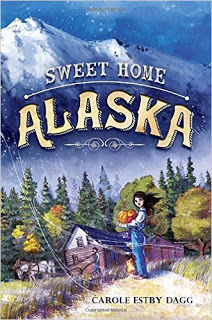 But I know my characters and what I’m trying to say with the book better than anyone else.
But I know my characters and what I’m trying to say with the book better than anyone else. Even when I accept the suggestion, I solve it my own way.
Even when I accept the suggestion, I solve it my own way. If you’re lucky, you’ll have an editor like mine, Nancy Paulsen. In shaping SWEET HOME ALASKA, for instance, she wrote that I needed another bonding scene between two of my characters, but left it to me to write the scene that felt right to me. At its best, writing is a constructive, collaborative process.
 From writer pal Robin Reul, whose debut YA, MY KIND OF CRAZY (Booklist and AAP YA Read n’Rave pick ALA Midwinter), whose advice you will see echoes mine almost to a tee (I swear we didn't check or discuss first)! :
From writer pal Robin Reul, whose debut YA, MY KIND OF CRAZY (Booklist and AAP YA Read n’Rave pick ALA Midwinter), whose advice you will see echoes mine almost to a tee (I swear we didn't check or discuss first)! :If two people voice the same concern, it’s now an identifiable problem. . .
If one person points out something that wasn’t working for them in my manuscript, I consider it. However, If two people voice the same concern, it’s now an identifiable problem, and I don’t think twice about making the change unless I have a strong reason not to.
When I have two pieces of conflicting feedback, I consider if there may be other outside factors that might be influencing that reader’s feelings such as personal experiences, stylistic preferences or even their moral compass.
But when I have two pieces of conflicting feedback, I consider if there may be other outside factors that might be influencing that reader’s feelings such as personal experiences, stylistic preferences or even their moral compass. In the end, opinions are subjective and as unique as the reader they come from, so always consider your source.
In the end the things I am never willing to compromise are character likability (unless intended), authenticity and development of plot and characters. Any point where a reader is getting snagged on those three key elements is always worth considering even if you may not agree with the feedback as a whole.
And, from Liza Weimer, author of HELLO? who hosted Friday Feedback just last week!
General comments:
Be specific on what you want them to read for. Plot? Character development? Copyediting?
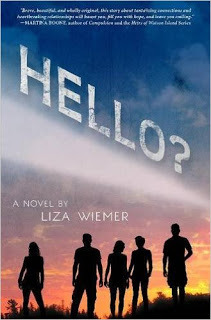 Choose wisely and know for what purpose you want your crit partner, crit group, or beta readers to read your novel. Be specific on what you want them to read for. Plot? Character development? Copyediting? etc.
Choose wisely and know for what purpose you want your crit partner, crit group, or beta readers to read your novel. Be specific on what you want them to read for. Plot? Character development? Copyediting? etc.If two of more people point out an issue, PAY ATTENTION and definitely consider changing it! If only one person gives you feedback on that issue, you decide if it has merit.
If someone says their process is the only way to write a novel, ignore them!
If someone says their process is the only way to write a novel, ignore them! Everyone has their process. If it works for you, go with it!
Here are a few nightmare moments:
1. I had an author tell me that under no circumstances could I include a flashback in the first 35 pages of my novel. Her editor friend told her it was taboo and an indication of poor writing. At first, her comment freaked me out. Then I dismissed it. My flashback was only a few paragraphs and was critical to my story. Needless to say, we didn’t exchange anything after chapter 1. What I learned: Don’t be afraid to push the limits and break rules. If you’re going to do so, do so with purpose and do it WELL!
2. I had another author take my first chapter, which was written in first person, and send it back to me re-written in third person. She said my novel would be so much better if I wrote it in third person. Thankfully, this comment came AFTER my agent had told me how much he loved it. I never had her read another chapter.
3. A writer friend of mine told me a woman in her crit group argued with her over a character’s dress color. Why should it be blue? Maybe it should be green? The color of the dress had no significance. It was a minor detail, yet it ended up becoming a major discussion around the table and a major waste of time. Needless to say, she dropped out of that crit group.
My best advice:
Know the difference between constructive criticism and criticism.
Know the difference between constructive criticism and criticism. Constructive criticism is about receiving sound advice: Comments should help improve your story, point out shortcomings, things that are missing or need flushing out and developing. The main goal of someone who gives you constructive criticism is to see you succeed. It elevates, instead of knocks you down. Constructive criticism isn’t meant to hurt or wound you, but to improve your writing. You don’t need to agree with every point, but the purpose of constructive criticism is to get you to think. Constructive criticism should be professional, (and sometimes humorous), objective, thoughtful, and clear. Those who give constructive criticism are not threatened by you. Their words should never be cruel or accusatory. They care enough to be honest, and they're not worried that if you succeed, it’ll mean they won’t.A critical part of receiving constructive criticism: set that ego aside!!!!!! Be humble!
One of the hardest things I had to do with Hello? was remove one of the characters narrating the story. I had six, there are now five. My agent said six was too much and an editor said six was too much. Jordan needed to go! My initial reaction was to argue. But the most important thing I did was LISTEN to their reasons why. (Mainly, too much plot.) Always ask why if a reason isn’t given or it’s not clear and obvious. After listening to their perspectives, I had no doubt they were correct. Truthfully, their advice scared me. Each Hello?’ chapter belongs to a specific character and intertwine with the next. I ended everyone with either a phone call, text message, or a specific thought about the next character so that the reader would know who was next in the narration. Pulling a character meant I would have to reweave the story and do so seamlessly. At first, it was terrifying, daunting. But I did it! Victory!!!!! Not only was it the right thing to do, but I’m grateful for the advice. (Note: I kept Jordan in the story. But he’s now a strong secondary character.)
Here’s an example of how asking why and explaining why helped me decide to only take part of my agent’s advice. He told me that Emerson, one of the main characters in Hello?, shouldn’t come from a large family. (Emerson has four sisters.) My agent's argument was that having all those sisters in the novel was too much, adding complications and making it harder for readers to follow. I understood his points. But being an only boy with that many sisters had a profound impact on Emerson and influenced him deeply. After weighing the advice and my perspective, I decided the sisters needed to stay. But my agent was also right. The question was how to make it work. And that’s the point: writing it work. I needed to puzzle it out, but I succeeded and am thrilled with the results.
***
So there you have it! A bunch of advice to try to help you muddle through that contradictory and, at times, overwhelming advice. Hope it helps! See you on Friday for a fun and light Friday Feedback! Cannot wait!
xox gae
Gae is the author of THE MEMORY OF THINGS coming September 6, 2016 from St. Martin's Press Griffin, as well as THE SUMMER OF LETTING GO and THE PULL OF GRAVITY. THE MEMORY OF THINGS has been named one of the most buzzworthy books of summer by YA Books Central and one of Barnes & Noble's most anticipated reads of the second half of 2106. Preorder your copy today!
Published on July 18, 2016 06:15
July 15, 2016
Friday Feedback: Liza Wiemer and the WHY of it all. . .
Hey, shiny campers!!!
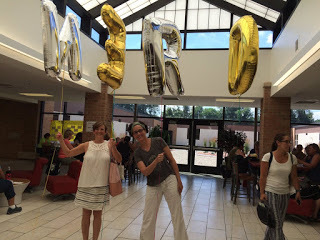 I'm back from the amazing #nErDcampMI and super excited to have met several Teachers Write campers there, at least briefly! What a wonderful place #nerd camps are. Nora Raleigh Baskin and I had a GREAT time, and I urge you, if you have a chance, to check them out and see if there's one popping up anywhere near you!
I'm back from the amazing #nErDcampMI and super excited to have met several Teachers Write campers there, at least briefly! What a wonderful place #nerd camps are. Nora Raleigh Baskin and I had a GREAT time, and I urge you, if you have a chance, to check them out and see if there's one popping up anywhere near you!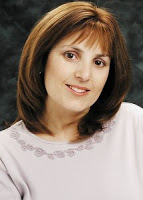 Meanwhile, back to real life. Luckily, I am super ridiculously excited to have Liza Wiemer here today to talk about the WHY of it all.
Meanwhile, back to real life. Luckily, I am super ridiculously excited to have Liza Wiemer here today to talk about the WHY of it all. Liza is the author of Hello? about which, SLJ said,
"Readers will appreciate literary references to Ralph Waldo Emerson, the 19th-century transcendentalist essayist and poet whom Emerson is named after. Chapters open with Emerson quotes. Savvy popular culture fans will savor references to everything from Frank Sinatra's signature songs to Led Zeppelin to films like Psycho and 500 Days of Summer. The author successfully ties these threads together without weighing down the narrative."
Doesn't that sound good? Okay, well don't take it from me or just them: Hello? was also named a Goodreads YA Best Book of the Month, November 2015, and Paste Magazine said, “Hello? is one of the most original novels of the year… If you’re looking for something incredibly different...push this to the top of your list.”
I have it on my Kindle and cannot wait.
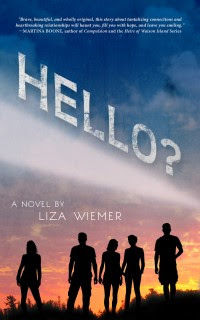
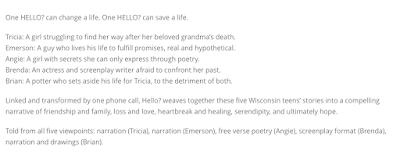
So, without further ado, here's Liza talking about the WHY of it all:
If you’re a parent, a pre-school teacher, or have ever been around two and three and even four-year-olds, you’ve most likely been pestered with “Why?” Why?” “Why?” After a while, it can get annoying. And eventually the message gets through: Stop asking why! Which stifles our natural curiosity. We learn to mind our own business. To stop paying attention. Or if we do notice something different, witness something painful, hurtful or perhaps interesting or amazing, we don’t necessarily stop and ask why.
But “Why” is the most important question. It’s the key to unlocking a story. It creates depth, meaning, and understanding. “Why” is the revealer of secrets, the motivation for behavior, the unveiling of hidden wounds or a unique talent.
Here’s an example -- and with #3 being the piece I'm putting up for "feedback" -- which illustrates how “Why” can transform a story. It's not from a WIP exactly, but from my own life. Consider this my excerpt. As I reveal more, pay attention to whether answering "why?" becomes the key to motivation, to making the story compelling.
1. When I was twelve years old, a Mormon who said hello to me saved my life.
 2. When I was twelve years old, my family was whitewater rafting in Utah. My fourteen-year-old sister and I shared a raft. A Mormon couple, whose raft had popped, asked my sister and me if they could join us. They said they’d give us five dollars each if we’d help them out. Twenty minutes later, I fell into the water and the man grabbed my shirt and threw me into the raft, saving my life. At the end of the trip, he gave my sister and me the money.
2. When I was twelve years old, my family was whitewater rafting in Utah. My fourteen-year-old sister and I shared a raft. A Mormon couple, whose raft had popped, asked my sister and me if they could join us. They said they’d give us five dollars each if we’d help them out. Twenty minutes later, I fell into the water and the man grabbed my shirt and threw me into the raft, saving my life. At the end of the trip, he gave my sister and me the money.3. After coping with a brutal divorce and hating my mother for breaking up our family, her idea to take a three-week RV road trip with my future stepfather, stepsister, and stepbrother was an omen for disaster. My fourteen-year-old sister, my seven-year old brother, and I, at twelve, had no desire to blend our family with strangers. To make the situation worse, my mother cleaned out my savings account to pay for the trip. Without telling me! I had at least fifteen hundred dollars; money I was saving for college. This combination set into motion an event that changed my life forever.
By the time we reached the Teton Mountains in Wyoming, I considered running away and living like Grizzly Adams. To this day, I can put myself into that space, staring out the laundromat windows, longing for freedom. While folding my soon-to-be stepfather’s underwear, my sister convinced me to stay.
As our grumpy group traveled west, we stopped somewhere in Utah to go river rafting. I partnered with my sister. It was a beautiful day, and as we meandered down the lazy river, we exchanged hellos with a young couple as they passed us by.
Fifteen minutes later, we came upon them, drenched, standing alongside their deflated raft. The man called to us and explained that they’d hit something sharp, tearing through the raft’s skin. He held up the shredded rubber as evidence. “Could we go down the river with you?” he asked. “It’s too far to walk or swim. We’ll pay you. Five dollars each.”
The question of safety never crossed my mind. He explained that they were Mormons that no harm would come to us. And, if doing an act of kindness wasn’t motivation enough, the promise of money definitely was a strong incentive. My sister and I welcomed them, and the couple took over paddling.
Twenty minutes later, a storm came out of nowhere. Pitch black. Thunder. Lighting! A curtain of rain pelted us. The raft dipped, dived, and spun out of control with the treacherous torrent. Before I could secure my life preserver, the raft smashed into an outcrop of boulders and I flew into the water. Down, down, down. The current dragged me along. Face toward the sky, I stared up as my back bumping along the bottom. With no control, nothing to grab ahold of, I knew I was going to die. And somehow, I found peace with it. I accepted it.
Until a hand fisted my shirt and I was thrown into the raft. The man saved my life.
Soaked to the bone, we finally made it to the drop-off point. The man pulled out his soggy wallet and removed two five-dollar bills. My sister accepted hers, but I refused. “You saved my life. I can’t take that.”
“But you have to,” he said. “You helped us, and I promised.”
Shaking my head, I stepped back. No. I couldn’t take payment after what he’d done for me. If their raft hadn’t popped, if my sister and I had been in alone, surely both of us would have drowned.
The man held out the five dollars. “Please,” he said. “I made a promise, and when I give my word, it’s important people know they can count on me. By taking the money, you’re doing me a favor. You’re allowing me to fulfill that promise.”
Reluctantly, I took the money. And learned a life-long lesson. Your word is everything. If you can’t follow through on a promise, explain why. Because otherwise your word means next to nothing. To this day, I try my best to only make a promise when I know it’s one I can keep.
*** For today's Friday Feedback, share an excerpt that you have transformed by asking why. Make sure you dig deep, then deeper, then deeper still. I look forward to reading your excerpts!
*Campers, please note that Liza's story is longer than the excerpts you should share for feedback (I know, I know, it's unfair, but it would be too much for Liza (and me!) to have to read and give feedback to. So please limit your excerpts to the usual 3 -5 paragraphs. And remember that anything posted past the end of the business day Friday will not necessarily be read by Liza. Anything posted past midday Saturday won't be read by me as I will already be gearing up for next week's Friday Feedback plus a mid-week post!
A huge thanks to Liza for hosting! If you want to read more about WHY from her, you may go HERE: Create rich characters by asking WHY. And please check out Hello? and order a copy for you and/or your students today!
xox Liza (and Gae!)
Published on July 15, 2016 04:21
July 8, 2016
Friday Feedback: First Lines with Nora Raleigh Baskin
Nora and I recently met to work on our #nerdcampMI
presentation and a few of the librarians were
ridiculously excited to know Nora was there.
Morning, shiny campers!
Or, afternoon, if you slept in -- okay, fine, or worked in!
Today, I have one of my closest friends, Nora Raleigh Baskin, here hosting, and let me just say, whether you know it or not, that was a really cool sentence I just got to type.
I mean, REALLY cool.
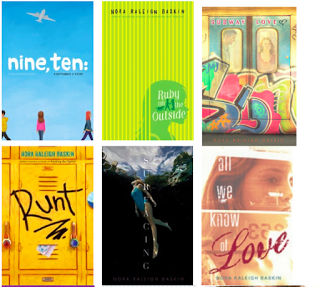
I only met Nora a few years back at a book event and was kind of starstruck as she was the well-known (I'd say famous, but she'd balk) author of so many beloved books, from ANYTHING BUT TYPICAL to IN THE COMPANY OF CRAZIES to RUNT.
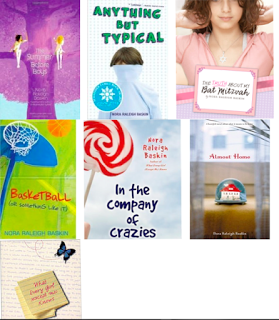
Although we immediately hit it off, I couldn't foresee that two "9/11" books (her NINE, TEN and my forthcoming THE MEMORY OF THINGS) would bring us truly together, and make us the best (right, Nora? Best?!) of friends.
For the last several months, Nora and I have been working hard together to create a profound (we hope) school, library and general public (and upcoming #nerdcampMI!) presentation on Coping with Tragedy through a Writer's Lens, which incorporates the whys and hows of writing on 9/11, the extensive research we did to get our books right, some literary dealings, and what we hope -- and trust -- our readers will take from our stories.
We will also be sharing our many events and school visits under the #readandremember hashtag on twitter, and invite you to join us in using the hashtag if you read and love our books and want to share.
At any rate, Nora's extraordinary middle grade novel NINE, TEN: A September 11 Story was just released to two starred reviews and many other amazing accolades ! I'm so lucky and honored to work with her.
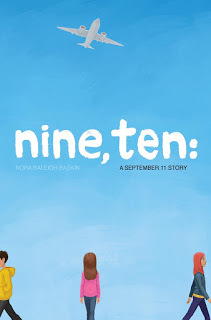
Please feel free to email either of us if you are interested in bringing our presentation (or us individually) to your school. And, if you teach middle graders, I strongly urge you to bring this stunning book into your classroom. No, really. Here you go. Right now! I also urge you to peek in on Nora's virtual launch of NINE, TEN on Facebook and share some of your own 9/11 stories. . . still postings taking place there and they are all so very moving!
So, without further ado, here's Nora with a really amazing and generous lesson on first lines.
p.s. Wonderful accompanying illustrations done by her father, Henry P. Raleigh!!!
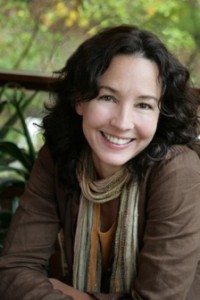
"Your first sentence should make a promise that the rest of the story will keep"-- Francine Prose
First Lines
I often introduce this “First Lines” exercise when I am teaching kids (or adults) and I know my students don’t feel like writing very much that day. It’s a low-risk writing exercise. One line. What do you have to lose? All you have to do is write the first line of a story that you never have to finish. In fact, you aren’t suppose to finish. It’s just one teeny, weeny sentence. How hard could that be? It isn’t hard! It’s fun and easy, and the best part is how much information is hidden inside this exercise. (No, actually the best part are the amazing first lines that can arise from doing it.) In this “lesson,” I secretly implant my best advice for good writing. You can use this “first line” exercise as a jumping off/writing prompt. Or If you have a WIP, I suggest you take a look at your first sentence after you’ve read this post and see if you don’t want to rewrite your first line (or even reevaluate your first paragraph scene/chapter.) So here’s how it goes. . .
Wait, brief disclaimer: What I am about to tell you, is my opinion. These are some “rules” that I have discovered and gathered, in my sixteen years of publishing, that work for ME. But I don't have all (or, sometimes, any) answers. And, remember, I NEVER think about the things I am about to talk about WHILE I am writing. Some is done in the pre-writing stage and most, during revision. Meaning, just write, and think about all of this again LATER. Okay, here goes (again): There are really only three types of sentences, so hence only three ways you can start your story. They are: *Description : It was a cold and stormy night *Dialogue : “I like you,” the boy said. This includes sounds: Bang! Pop! Watch out! And the ever-popular: Crash! *Narration: The boy and girl walked down the street.
Now, I can begin a new book without knowing the ending (I NEVER know the ending), without having any kind of outline, without even knowing all my characters, or their exact characteristics and my first sentence will always be either, dialogue, description, or narration. BUT I cannot start a story without knowing these three things:P.O.V
ToneSetting These three things should all be included in your first sentence.(though not necessarily visibly) Let’s break them down. P.O.V Point of View. Again, only a few choices here: First, second, or third (close or omniscient.) Most people know these, but many forget to consider from what point in time the narrator is telling their story. Present tense is pretty self explanatory, but past can be trickier. Is this narrator telling this story from a distance? Two days. Two years? Or just a few seconds? Past tense has the magical suspension of disbelief, that although everything taking place has alreadyhappened, the narrator doesn’t know what is coming. And most importantly. . . Whyare they telling this story? Why are they telling it NOW, at this point in time? Your first sentence will hold this information, either directly or subliminally.
Tone: I like to think of this as, What kind of TV show did I just put on? Law and Order? Glee? The Brady Bunch? Or Dark Shadows? I’m dating myself, but you get the idea. You need to have a very firm idea about what KIND of story you want to write. For me, when I wrote my first book, I knew I wanted it to be poignant but humorous. Humorous but poignant. (I was completely inspired by Ruth White’s Belle Prater’s Boy.) You don’t want to change your mind about tone mid-way through writing. And you don’t want to be wishy-washy about it either. Tone will inform every scene, every word choice, every character decision, the beginning, middle, and end. It is the music and lighting of your story. It is the way your reader will know what kind of TV show they’ve just just put on.
Setting: Setting. Setting. Setting. For some reason, new writers often forget how important this is. I mean, they think they’ve know the setting, but often, not well enough. KNOW your setting, know everything about it. Not just whether your book is set in the country or city, but the economics of that town. Know, not only that your character is in middle school, but how large the school is. What is the demographics. The landscape. Know, the country, the exact state (you can make up towns, but not the state!) the town, and the street. The more specific the better, even if none of it ever shows up in your text. It will be relevant to your characters and every aspect of your story. So don’t gloss over setting. (p.s. If you write fantasy, knowing your setting is, of course, even more important because there will be no common context for your readers. You will need to have every detail ironed out and consistent.)
Once you have these three things settled, it’s safe to start driving.
Writing your first draft is like driving in the dark. A revision is driving with the lights on. But we are getting ahead of ourselves. I want to share a few hints/rules that should help you with your first line (and the rest of your story.)
One: Begin your story at a point at which something has happened or is about to happen.
Kurt Vonnegut says, enter a scene as late as possible and get out as early as you can. In other words, don't start at the beginning. You don't have front-load all information. There are many other ways to reveal backstory, using dialogue and flashbacks. Or maybe you don’t even need it.
Two: Details not adjectives will make your writing better. Be as specific as possible. And it’s
salient details not just every details. What you chose to show is like a camera close-up. The viewer/reader will see it as important. Don’t show EVERYTHING.
Three: When you write that first sentence ask yourself this: Can I draw a picture of it? The first sentences that stay in your mind, the ones that make the biggest impact, and draw the reader in the best, are visual. You can see them. Remember them. Draw a picture of them.
*Take a risk. Stand naked and write boldly.* Four: And lastly, take a risk. Stand naked and write boldly. Write from your heart (always my advice!) If you have a passion about something, go for it. Don’t hold back.
That first sentence can be long or short, complicated or simple.
Louis Sachar-Holes: “There is no lake at Camp Green Lake.”
Cynthia Rylant- Missing May: “When May died, Ob came back to the trailer, got out of his good suit and into his regular clothes, then went and sat in the Chevy for the rest of the night.”
It may or may not reveal the point of view.
Anne Brashares- The sisterhood of the Traveling Pants: Once upon a time there was a pair of pants. Ruth White- Belle Prater’s Boy: Around 5:00 a.m. on a warm Sunday morning in October 1953, my Aunt Belle left her bed and vanished from the face of the earth.
It might hit you over the head with tone, or be more subtle.
William Steig- Solomon and the Rusty Nail: “Solomon was an ordinary rabbit, except for one thing: anytime he wanted to, he could turn into a rusty nail.”
E. B. White- Charlotte’s Web: “Where’s Papa going with that ax?” said Fern to her mother as they were setting the table for breakfast.
But look how much you know from each of these examples! Look carefully. They are packed with information. They are unforgettable first sentences. But don’t take this too literally, if your first sentence doesn’t turn out to be a knock out, don’t make yourself crazy. Just make sure your first paragraph, first scene, first chapter is. First lines is a metaphor for that promise you are making your reader that the rest of your story needs to keep.
Having said that, I'm not sure of this first line yet from one of my works in progress. What are your thoughts on it, and the shared excerpt (as per the Friday Feedback RULES): What works? What doesn't? Does the piece compel you to keep reading?
Chapter One
“Well, what did you expect?” Cat was asking. “That he’d stop dead in his tracks and say, ‘Hey aren’t you the girl I locked eyes with for a total of three--no, probably more like two seconds--a year and a half ago? Oh my god, I’ve been looking everywhere for you.’”
Grace shrugged. She was used to this, people not understanding her, even, sometimes, Cat, her best friend. For quite a while now, Grace suspected that other people didn’t have the same commentary constantly running through their head, mostly self-critical, often times, half a click away from panic.
You can be pretty intense sometimes, Grace, Cat would tell her. Cat would try to explain, not everybody thinks about everything the way you do. They don’t all feel the same way about things. They don’t all look for the drama like you do.
Or get hurt as easily.
Or absorb blame so readily.
And it was pretty crazy, Grace had to admit. To be thinking about a boy she didn’t know and had made up fantastical stories about for all these months; about how she would bump into him. Ways they could meet. About when Luke would kiss her the first time, and how amazing that would be.
She had a mad crush on someone who resided completely in her head. Luke hadn’t rejected her in the hall; she had set herself up. It was like being in love with a movie star, with someone you can never have. Someone who doesn’t want you. Grace seemed to have a penchant for that kind of love; Wanted but not wanted, loved but not loved enough. It was a dance she had learned a long time ago, steps she had taught herself, because she had to.
Now it’s your turn. One line or the first few paragraphs. Stand naked. Take a risk. Let your freak flag fly. Let the games begin.
- Nora (and Gae)
(p.s. My guest authors work hard ALL day and sometimes ALL weekend. So please check out NINE, TEN and all of Nora's amazing books!
Published on July 08, 2016 03:11
July 1, 2016
Friday Feedback, Summer 2016: Giving the "F" You to Fear, False Starts and Fatigue (with links to prior years' semi-inspiring blogposts so as not to repeat myself ad nauseam)
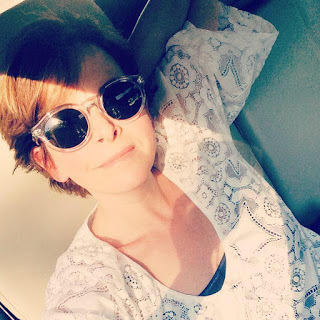
Well, well, well,
Look at YOU, hot stuff.
You're here.
Which means you're writing.
Which means you found a way to tiptoe (or blaze) past the wall of fear, false starts and fatigue and start (or, keep going).
Which means you are ready and willing (or continuing) to put yourself out there and be brave.
Which means you are awesome. I say so.
So, take a moment to soak that in.
No, really.
Maybe stand up and look in the mirror and wave and say "hi" to that new (or continuing) shiny you.
Okay, maybe I'm being a bit cheeky or something -- hey, it's SUMMER! -- but I mean it.
I do.
It takes a LOT to be here.
It takes commitment.
It takes putting aside the excuses.
And, yes,
It takes being brave.
Even if you're here but you're lurking. Even if you're not ready to share.
So, congrats. It's a little something miraculous and good.
Seriously.
In fact, every year when I gear up for Teachers Write, we all talk about this: HOW HARD IT IS TO JUST FUCKING WRITE. To put words to the page, try to hone and perfect them, and then, OMG, share them with the world. For critique. For criticism. For rejection. With the small, humble hope they connect.
And, every year (month, week) I meet aspiring writers who "would write" except for the two things that separate them from the rest of us:
They don't have the time.
They're afraid.
Oh, right, yeah. Get in line. Take a ticket. Welcome to The Club.
*WHAT WOULD WE DO IF FEAR DIDN'T STAND IN OUR WAY?*
That's a famous quote, I think. I wish I could remember who said it. In the meantime, attribute it to me.
Because here's the thing. We've got news for you: None of us have time (at least when we started out). We MAKE it.
And, hell, yeah, we're all CONSTANTLY afraid.
I am afraid:
Every time I sit down to write a new story. Every time I pass a rough manuscript on to a BETA reader. Every time I pass one off to my agent (which I have just done. *pours wine) Every time I wait on my editor (this is next and absolutely terrifying. . .). Every time I wait on a critical review (these are coming in now on THE MEMORY OF THINGS). Every time I wait to see how readers feel (see above. *switches to vodka)
Here's the truth, my lovely campers:
Writing is a veritable sea of fear of rejection .
On a small scale, and a grand scale.
*WRITING IS A VERITABLE SEA OF FEAR OF REJECTION*
So, go buy yourself a fancy new swim suit (or wet suit or birthday suit) and wade on in!
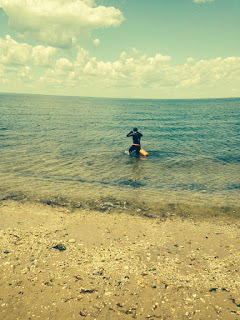
This is a great, safe place to start. Not just Teachers Write, but here on Friday Feedback, where my motto is, Brave is as Brave Does. Where we -- the published authors -- put ourselves out there with an excerpt from our own, new, raw, rough work for feedback, so that you might be brave enough to do so, too.
How does it work? Easy peasy:
Every week, I -- or one of my awesome guest authors -- will share a tiny bit of writing wisdom followed by an excerpt of our own ROUGH, UNPUBLISHED writing for your feedback. In return, we offer you the same opportunity: to share a brief excerpt in the comments for feedback from us (and other campers!).
See? Simple and exciting. There are just a few more RULES:
1. The Feedback should be specific and go like this:
WHAT WORKS? (and why);WHAT MIGHT NOT BE WORKING if anything (and why) andARE YOU COMPELLED TO KEEP READING?
Please note the order of those. Here at Friday Feedback, our first goal is to be encouraging. We appreciate the gems in one another's writing before we offer up constructive criticism.
2. The excerpts should not exceed three paragraphs, if long, five paragraphs if mostly dialogue or otherwise short.
There may be 30 - 50 excerpts up here on a busy week for me and/or my guest authors to read. If you put up more than the requested length, we do not promise to read. You may post excerpts through Saturday and I will check in, but I do not require my guest authors to read past close of business Friday.
3. We ask you to remember this: there is only so much we can realistically glean from a brief excerpt out of context.
Friday Feedback is intended to be instructional and inspiring, but our feedback out of context of a full work, must always be taken as merely that. Your job here is to take in the information as you will. Keep what you like. Toss out what you don't. In the end, you are the boss of your own writing.
4. You may be the recipient of one of my patented "Superspeed Flash Edits."
Okay, fine, they're not patented, whatever. Sometimes, if your excerpt lends itself to me doing one of these, I will do so: namely, zip through your piece editing for passive voice (where not intended) unneeded words, wrong punctuation, repetition, etc.
I will NOT edit your own unique voice or substantive writing. This is an exercise intended to demonstrate how revision/clean up/intentional writing can truly make our voices pop and shine.
If you do NOT want to be the recipient of a Superspeed Flash Edit for any reason, please message me at g.polisner@gmail.com.
And, I think that's it. If you want to be super brushed up on the rules, I probably cover them in more depth HERE or HERE.
Otherwise, super excited, so here we go!
Since we've just begun our summer together, I figured our openings are a good place to start. This is the opening for a manuscript called IN SIGHT OF STARS that I just handed in to my agent . . . Remember that fear thing we were talking about up there? Triple it ten-fold (okay, fine, I know that's not good math) and add in some terror for good measure!
Anyway, I won't tell you anything about it. Let's just see how it makes you feel. . . And if you want, in the comments, share a piece that might also make us feel.
So, without further ado: What works for you? What doesn't? Do you want to keep reading on?
Look forward to reading your work in the comments!
 I know it even before I push the fucking door open. Sarah is in there, moving, in slow motion. I cry out, but no sound comes. The pain is swift and excruciating. I shouldn’t have come here. I know she can’t help me. She already told me she isn’t the one.Fuck.I jam my hands in my pockets, turn to go. Someone – not Sarah – says something obnoxious. I know it’s that douchebag Abbott. I don’t give a shit. Screw them all. I’m done with this place soon. Done with all of them. My mother, and everything at Northhollow.I reach the door, jam my hands harder, registering the metal in my pocket. The X-acto knife.I don’t know why I do it. My brain says, show her. Show her how bad you hurt.So I do. I cut. The air grows cold and dizzying. “Holy fuck, Alden! What the hell?”Jesus. There’s way more blood than I thought. I lie down on the cold tile floor. This pain will make that pain stop.
I know it even before I push the fucking door open. Sarah is in there, moving, in slow motion. I cry out, but no sound comes. The pain is swift and excruciating. I shouldn’t have come here. I know she can’t help me. She already told me she isn’t the one.Fuck.I jam my hands in my pockets, turn to go. Someone – not Sarah – says something obnoxious. I know it’s that douchebag Abbott. I don’t give a shit. Screw them all. I’m done with this place soon. Done with all of them. My mother, and everything at Northhollow.I reach the door, jam my hands harder, registering the metal in my pocket. The X-acto knife.I don’t know why I do it. My brain says, show her. Show her how bad you hurt.So I do. I cut. The air grows cold and dizzying. “Holy fuck, Alden! What the hell?”Jesus. There’s way more blood than I thought. I lie down on the cold tile floor. This pain will make that pain stop.
xox gae
*please note that my mother in law passed yesterday (expectedly at the age of almost 90 after an extended illness) and the services are today. . . (please don't fill the comments with condolences!!). So, note that it may take me through Saturday to get to all the feedback. I promise I will!
** This is a great recent piece in the NY Times on just how busy we really are.
Published on July 01, 2016 03:11
June 8, 2016
SPRING UPDATE! B-Fest, Kirkus Reviews, and $1.99 Deal on SUMMER!

Heads up! Spring is flying too fast. And there is way too much to do!
Here's some bookish stuff that's going on . . .
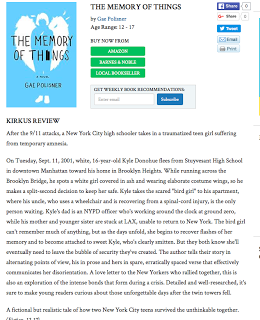 For starters, early reviews for THE MEMORY OF THINGS are coming in and they are pretty wonderfully good.
For starters, early reviews for THE MEMORY OF THINGS are coming in and they are pretty wonderfully good.Booklist calls it,
"...a touching look at the power of selflessness, memory, and hope in the face of tragedy."
And Kirkus Reviews says:
"A love letter to the New Yorkers who rallied together. . .Detailed and well-researched, it's sure to make young readers curious about those unforgettable days after the twin towers fell."
Then there's YABooksCentral that says it, "Leaves a small mark on your heart," and calls it one of the Buzzworthy Books of the Summer.
There happens to be a Goodreads giveaway going on for the galley copy right now, if you want to throw your reading cap in the ring!
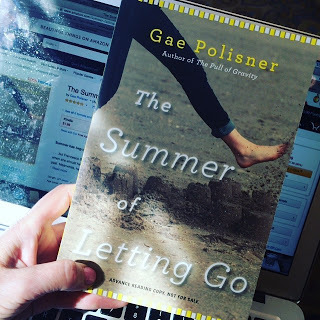

As for summer. . . I mean, SUMMER, as in THE SUMMER OF LETTING GO, I will be at both the East Northport, NY and Lake Grove, NY Barnes and Nobles this weekend (June 10 - 12) as part of B-Fest, the first-ever national teen book festival and I can't wait!
Join me, Selene Castrovilla (MELT & SIGNS OF LIFE), Lisa Amowitz (UNTIL BETH) and Laura Burns (SANCTUARY BAY) at the East Northport location (June 10 at 7:30 pm) for a 90-Second Read Event followed by signings...
and join me Saturday at the East Northport location for some writing workshop fun AND a sneak read from THE MEMORY OF THINGS! I'll be giving away a signed manuscript, too!
Also, if you haven't read THE SUMMER OF LETTING GO yet, it's a Kindle deal right now at $1.99!
Oops, sorry. Yeah, I shouted that. Forgive me. I've never been a $1.99 Kindle deal before.
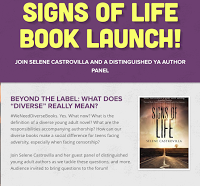 On June 22nd, I'll be at Books of Wonder, NYC, with an amazing panel of authors talking diverse books and what that even means, and celebrating the launch of pal Selene Castrovilla's SIGNS OF LIFE! You should join us!
On June 22nd, I'll be at Books of Wonder, NYC, with an amazing panel of authors talking diverse books and what that even means, and celebrating the launch of pal Selene Castrovilla's SIGNS OF LIFE! You should join us! Last but not least, I'll be heading to #nErDcampMI in July with pal Nora Raleigh Baskin to share a super exciting presentation on our sister 9/11 books, NINE, TEN: A September 11 Story and THE MEMORY OF THINGS. We've been working hard to share the hows and whys of our books and our stories, and I'm so lucky to be sharing a huge part of this journey with Nora. She's a huge talent and one of the bright gems of friendship in my life.
Other than that, the usual family stuff (on super speed and super-need!), plus the open water season is now open for full business, and before you know it, it's going to be August, and I'm going to be calling for Spring again.
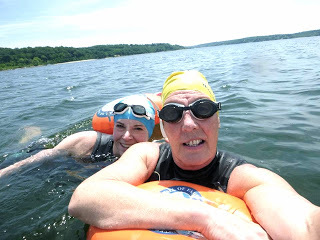 Blissfully in the salt with Fairy Pod Mother
Blissfully in the salt with Fairy Pod Mother of the West Neck Pod, Carol Moore. xox (keep reading!)
gae
Published on June 08, 2016 08:19
May 17, 2016
Dearest John Green. . .

Dearest John Green,
with your books and your vlogs,
(ooh, so groovy, now movies),
you're one of the gods. . .
You travel, and tweet,
hit talk shows galore
(I read. . . you do bleed. . . )
but, for Pete's sake, there's more?
A podcast now too???
Man, I don't want to hate
(Crash Course riffs, they do drift. . .
your next book. . .
is it late?)
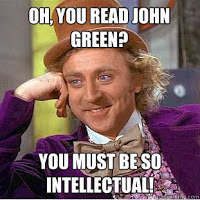
I write and I scheme
and I make big plans too
(go above. . . take on gov. . .)
But, I'll never be
YOU:

With your vlogs and your vids
and your movies and books
(lovers scheme. . . haters meme)
Geez, you've even got looks
So it is, Mr. Green,
To thine own self be true
(it's gestalt. . . the stars' fault)
Hey, I dig what you do. . .
But, alas, while I sat
to create this dumb poem
(it's a guess, i confess)
But you probably built Rome.
Motherfucker.
Love,
Gae
Published on May 17, 2016 06:48
April 19, 2016
Summer is coming; It's time to let go.
For me, summer is such an incredible time of letting go, and of bliss.
It wasn't always that way for me. If you asked kid/teen me my least favorite season, it was probably summer, or at least summer played a close second to winter in that regard.
I'm not sure why, but the summer held angst for me, rather than allure.
It wasn't until I became a real swimmer in my early 40's -- and an open water swimmer -- that summer turned into something else entirely. A time of power, a time of regeneration and healing, a time of bravery, and, yes, a time of relaxation and bliss.
Now, each dark, weary winter, I remind myself I just need make it to summer and the restoration will begin.
Don't get me wrong. I love spring too, with its endless buds and promise. And for me, that is when the open water season now readily begins. I was out with my Pod this past weekend, and it was glorious -- cold (about 45- 48) but "doable" and therefore, EVERYTHING.
me, last weekend, with my Podmates, before. . .
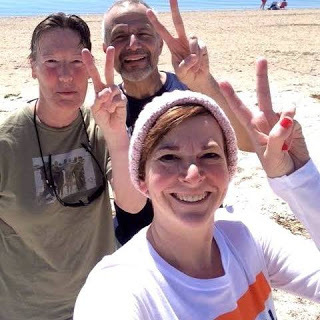 and after our amazing 45-minute open water swim...
and after our amazing 45-minute open water swim...
As a Podmate watched me stand at the water's edge and breathe deeply in, he said to me, you really need to write a book about the water.
Oh, Tony, I have! I said. I promise you I have.
And while it's surely a theme I return to again and again, my book about water is THE SUMMER OF LETTING GO -- a book about the fury and power of water to take away, as well as its power to heal and help us forgive.
One of my favorite early reader reviews contained this sentence, "It's as if the water itself is a character in the story." I wept when I read that review as it is exactly what I set out to do.
I know that the book has been characterized as "YA" and of that I am proud. But I also want my readers to know that I try to write books that will be loved by any age, 12 - 102. Yes, my published works are stories set at a particular time of youth, but, I hope, they are inhabited by characters and themes that will appeal to the most sophisticated and savvy reader among us. Think To Kill a Mockingbird or Huck Finn, or A Separate Peace or the many, many wonderful novels for all ages populated by teenaged kids.
The truth is, most YA writers today will tell you that. We write for everyone.
We write for you.
At any rate, as SUMMER turns 2 (!!) next month, and I hope you'll add it to your reading list if you haven't read it yet. If you've read and loved it, I hope you'll share your review on line, and word of mouth with a friend.
And, last but not least, for those who don't know, I wrote an essay HERE for my publisher about why I wrote THE SUMMER OF LETTING GO, and I hope it might move you, if you haven't read it yet.
Here's to spring, and the bliss soon to come.
xox gae
It wasn't always that way for me. If you asked kid/teen me my least favorite season, it was probably summer, or at least summer played a close second to winter in that regard.
I'm not sure why, but the summer held angst for me, rather than allure.
It wasn't until I became a real swimmer in my early 40's -- and an open water swimmer -- that summer turned into something else entirely. A time of power, a time of regeneration and healing, a time of bravery, and, yes, a time of relaxation and bliss.
Now, each dark, weary winter, I remind myself I just need make it to summer and the restoration will begin.
Don't get me wrong. I love spring too, with its endless buds and promise. And for me, that is when the open water season now readily begins. I was out with my Pod this past weekend, and it was glorious -- cold (about 45- 48) but "doable" and therefore, EVERYTHING.
me, last weekend, with my Podmates, before. . .
 and after our amazing 45-minute open water swim...
and after our amazing 45-minute open water swim...As a Podmate watched me stand at the water's edge and breathe deeply in, he said to me, you really need to write a book about the water.
Oh, Tony, I have! I said. I promise you I have.
And while it's surely a theme I return to again and again, my book about water is THE SUMMER OF LETTING GO -- a book about the fury and power of water to take away, as well as its power to heal and help us forgive.
One of my favorite early reader reviews contained this sentence, "It's as if the water itself is a character in the story." I wept when I read that review as it is exactly what I set out to do.
I know that the book has been characterized as "YA" and of that I am proud. But I also want my readers to know that I try to write books that will be loved by any age, 12 - 102. Yes, my published works are stories set at a particular time of youth, but, I hope, they are inhabited by characters and themes that will appeal to the most sophisticated and savvy reader among us. Think To Kill a Mockingbird or Huck Finn, or A Separate Peace or the many, many wonderful novels for all ages populated by teenaged kids.
The truth is, most YA writers today will tell you that. We write for everyone.
We write for you.
At any rate, as SUMMER turns 2 (!!) next month, and I hope you'll add it to your reading list if you haven't read it yet. If you've read and loved it, I hope you'll share your review on line, and word of mouth with a friend.
And, last but not least, for those who don't know, I wrote an essay HERE for my publisher about why I wrote THE SUMMER OF LETTING GO, and I hope it might move you, if you haven't read it yet.
Here's to spring, and the bliss soon to come.
xox gae
Published on April 19, 2016 07:39
March 16, 2016
Cover Reveal!!! THE MEMORY OF THINGS.
Oh. My. Goodness!!
With all the excitement of the cover reveal at NERDY BOOK CLUB, I totally forgot to share it here!
Ridiculous.
THIS, peeps, is my extraordinary cover designed by the awesome David Curtis:
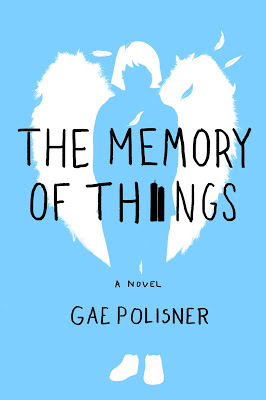 #readandremember
#readandremember I am so in love with it, I have to keep pinching myself.
The color. The power of the girl with her wings. The perfect punch in the gut of the twin towers in the letter I, that takes most viewers a second to notice.
If you want to read all about it, including about the designer's inspiration and the unintended, but amazingly awesome and perfect, appearance of Kyle on the cover, too, go to the NERDY BOOK CLUB post here, and read all about it!
https://nerdybookclub.wordpress.com/2...
THE MEMORY OF THINGS comes out September 6th! ARCs available early April. Hope you all love this book as much as I do.
#readandremember
xox gae
Published on March 16, 2016 19:16
February 29, 2016
Dinner & Drafting Tween & Teen Novel Writing Workshop on LI
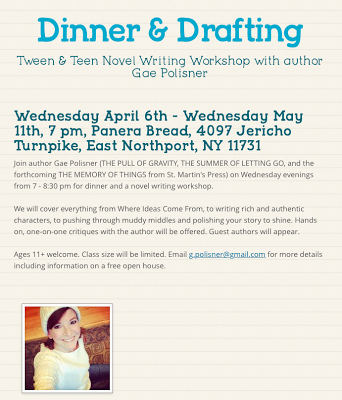 LOCAL to Long Island?
LOCAL to Long Island? Have a tween or teen who has been looking for hands-on writers workshop?
One is coming this spring!
So, after months of persistent requests from an awesome local teacher whose students had participated in my one-day Authorpalooza with Tween & Teen Writers Workshop last spring at the Huntington Public Library, I am biting the bullet and hosting my first ever, six-week novel writing workshop for students ages 11+.
You can find some of the details HERE and email me at g.polisner@gmail.com for more information, including pricing and details of our free introductory open house which is in the works.
The class size will be limited to provide truly hands-on revision time with me on a one-on-one basis.
If you get closed out of this one and your tween or teen is interested, I may add an additional session. As, well, if you are only a teen at heart, but over the age of 18 and interested, please email me at g.polisner@gmail.com and I will consider adding adult sessions.
Looking forward to lots of good writing.
xox gae
Published on February 29, 2016 09:44



